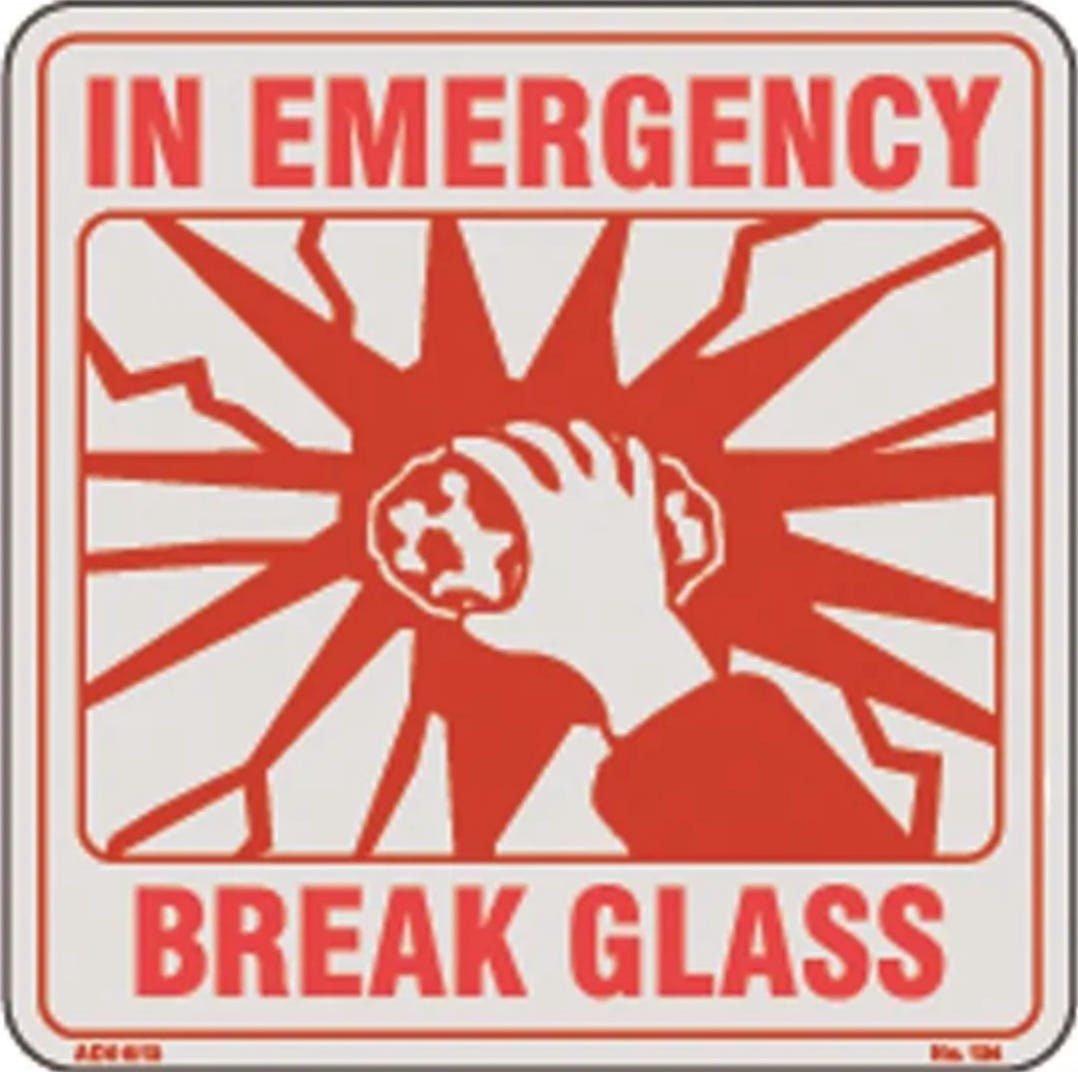I see these signs everywhere: “In Emergency, Break Glass”. On buses, trains, in school hallways, and hospital corridors. And while I’ve never had cause to break one, nor have I ever seen one shattered, what message does it send to hide a panic button behind a shatterable pane of glass? I guess the message is:
You better be damn sure that this is an emergency because you’re about to make a giant flipping mess.
(Quick sidebar: Who’s the genius that put a panic button behind a pane of glass? What if your emergency is that somebody stole your shoes? Or that you were already bleeding profusely from both of your arms, and would needlessly risk additional laceration to signal for help?)
But having to “break glass” in order to signal an emergency is kind of a big deal: First, there’s glass to shatter which makes a big ol’ mess. And once the glass is out of the way, you still have to hit that menacing red plunger button as you dodge glass shards flying hither and yon.
And what if after all that, the forthcoming assistance is inadequate? Are you then expected to be grateful for whatever help you’re offered? And what if no help comes your way at all? What then? Will you ever press the button (let alone break the glass?) again? And then there is the clean-up and re-installation of new glass, a not-so-subtle reminder that next time you need help, once again you had better be facing a serious emergency.
For many professionals - and certainly for me - asking for help often felt like facing down that “break glass” box, where I could only justify asking for help when my situation rose to an alarming, emergency level. This meant that I kept most of my challenges to myself, relying purely on the faith that my own talents would save the day. And sometimes they did, but there were also many times when my intuition failed me and my pride and stubbornness prevented me from admitting failure, demonstrating real personal and professional vulnerability, or asking for serious help.
But shouldn’t asking for help be the norm, not some emergent exception?
Because as mighty as we are, as infallible as we can sometimes feel, most of the time we are operating at a level where some assistance would be valuable. But we believe ourselves to be superhuman, flinty and formidible, so we cannot imagine reaching a point when we need to grab that tiny hammer and shatter the glass.
But instead of a red plunger, what if behind the glass was our own personal sherpa, a dedicated officer of our personal wellbeing? Somebody who could provide professional guidance to help solve some thorny tactical or political issue in your workplace? Or assist with caregiving or childcare logistics. Or give mental health advice, or offer you the comforting knowledge of having a safe place to vent.
I’m hopeful that as we navigate the post-pandemic world, we will start imagining real assistance behind that emergency glass, rather than the guilt-inducing and “less-than” feeling that sometimes comes with having to ask for help.
Or better yet, maybe we get rid of the glass and eliminate the guilt, mess, and potential lacerations altogether. Maybe it’s time that we asking for help is OK.
Because frankly, we all need help more than we realize.




